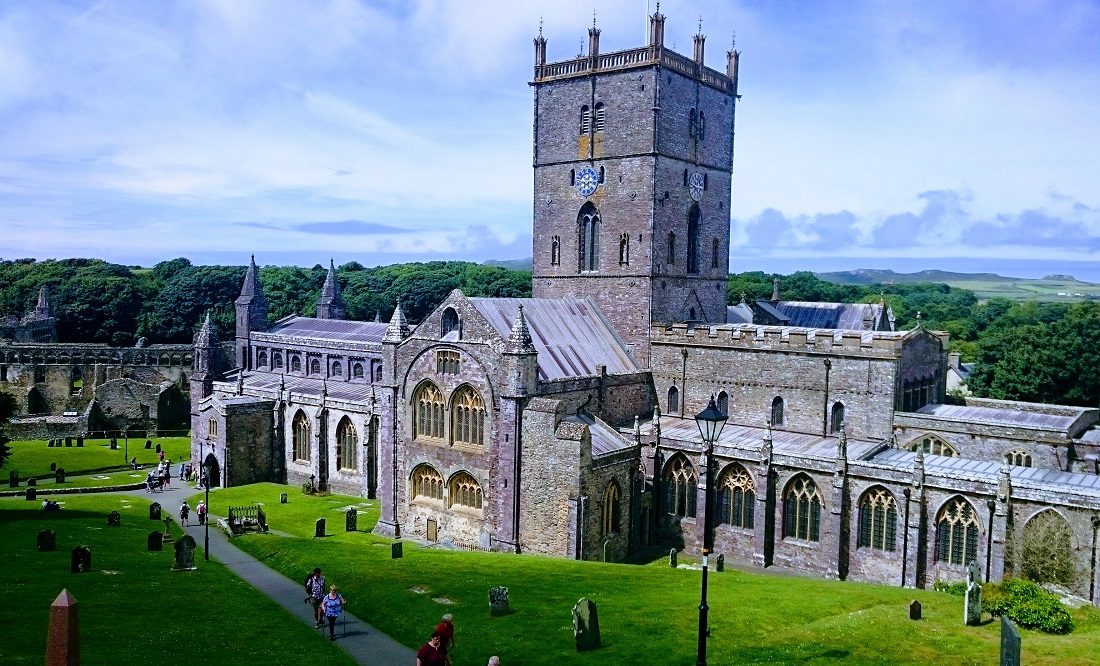Devastating job losses predicted for Wales’ tourism hot spots

New research by the Royal Society of Arts and Manufacturing has predicted that areas in the UK that are most dependent on tourism are likely to bear the brunt of post-lockdown job losses.
Both Pembrokeshire and Conwy appear in the list of the 20 areas most at risk with 31% of jobs in both areas under threat.
The report follows analysis from the RSA based on the latest furloughing data from the ONS and the jobs profile for each local authority.
The figures reveal 80% of workers in the hotel and food industries are on furlough schemes, alongside 68% of those in arts, entertainment and recreation, about a third of jobs are permanently at risk in the longer term in tourism-reliant areas.
In Pembrokeshire, the total number of jobs threatened is 13,313 and in Conwy 12,907.
Vulnerable
Richmondshire in North Yorkshire – which contains Chancellor Rishi Sunak’s constituency – tops the list of areas set to be most affected, with 35% of jobs vulnerable owing to its large hospitality and tourism sectors.
People living in London, south-east England and the knowledge economies of Oxford and Cambridge are the least likely to lose their livelihoods, the study says.
The RSA also found that younger workers aged 16 to 24 were more than twice as likely to be furloughed as middle-aged workers.
Alan Lockey, head of the RSA Future Work Centre, and one of the report’s authors said: “No part of the country is likely to be spared a severe recession, but those most dependent on hospitality and tourism will be particularly badly hit, especially rural areas, including many Tory shires.
“The government’s response so far has been robust, but it must avoid going back to ‘business as usual’ – including Universal Credit, sanctions and means-testing – if it’s to avoid the devastating impact of prolonged unemployment on whole swathes of the population.
“Covid-19 only highlights the need for a welfare state which addresses the economic insecurity felt by growing numbers of people in the UK.”
Support our Nation today
For the price of a cup of coffee a month you can help us create an independent, not-for-profit, national news service for the people of Wales, by the people of Wales.








” Covid-19 only highlights the need for a welfare state which addresses the economic insecurity felt by growing numbers of people in the UK.”
NO! what this article has shown is the need for a clear, imaginative and deliverable economic plan as a basis for economic security.
When people say to me about something “I told you so” I get annoyed. But I told you so….tourism is, was and never will be a sustainable economic policy delivering investment and highly skilled, well paid jobs.
Over to you Mr Skates
What Dr. John says. Also, any new WAG departments or agencies could be established not in Cardff but in the ‘stricken’ tourist towns. That might include a new department to take social housing out of the hands of the plethora of parasytical third-sector organisations, with a focus on the needs of local people in housing need, and an end to the bussing in of HMP Berwyn crims and inner-city dwellers from east of the clawdd.
I’m serious, Mr. Drakewell. Resurrecting tourism in its previous form will ultimately mean ‘Bye bye, Cymru’.
I read here that there is “great concern” about the long term damage likely to be inflicted on Tourism by the current crisis and its aftermath( whenever that comes). Surely that should be the cue for our great political leaders and those thrusting dynamic capitalists among us to develop new alternative economic activities that lead us away from seasonal, low margin dependency. Something a bit post-colonial in its style ? Asking too much ?
Tourism is seasonal and subject to whims. This years hot spot may be long forgotten in a few years hence. Tourism has been sustainable – world over. I would be more concerned about the destruction of indigenous businesses. and the jobs that go with them. They won’t be coming back any time soon. Of course globalist corporations like Amazon and the food industry will take up the slack – making Wales in the longer term poorer and more dependent. The is directly due to government intervention. Demanding more government intervention is like treating a patient with leeches and demanding more… Read more »
Edit: Tourism has NEVER been sustainable – world over.
“Tourism has NEVER been sustainable” Have you any evidence or can you quote any examples of that? Places like Las Vegas seem to be quite thriving little spots (obviously subject to ups and downs like farming, banking, car industry etc,)
Forget Las Vegas, Sun City (South Africa), and other such purpose-built places whose raison d’etre is entertainment in an adult playground. The unsustainability statement refers to small localities with fragile economies and an individual culture, and which cannot survive in their traditional form as a result of the impact of mass tourism. The whole of Western Wales is an exemplar of this; Cornwall likewise, and even Barcelona. It is self-evidently in the interests of these places to be helped by their governments in being gradually weaned off tourism and encouraged to develop a proper local economy with real jobs.